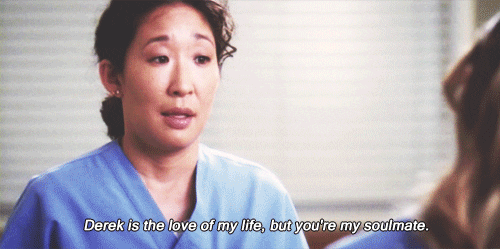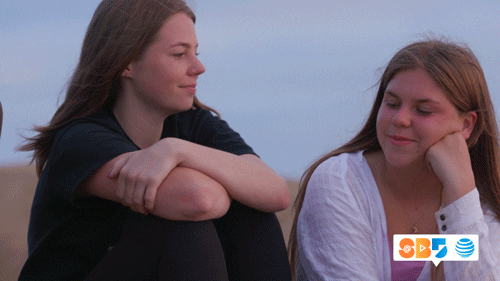Breaking up with your best friend can sometimes hurt as much as (if not more) breaking up with a significant other. And yet, we don’t really talk about friendship breakups, do we? So, we reached out to Dr Miloni Sanghvi, Psychologist and Outreach Associate at MpowerMinds and asked her to share her expert inputs on why we break up with our friends, why some friendships are hard to get over, and how to cope with the loss of a friendship. Scroll down to read all that she had to share!
Why do friendship breakups occur?
Whilst a row can lead to a rift in your friendship, the common thread of a friendship breakup is a result of two individuals no longer feeling like they share a strong connection with each other. As both individuals evolve, increasing differences in their interests, habits and choices may lead to this disconnect. Moreover, an individual may disconnect if they feel that they constantly invest more in the relationship than their friend. Whether the breaking off is sudden or gradual, a friendship breakup is the result of you not feeling good about yourself in this friendship–it doesn’t bring you comfort.
Why do friendship breakups feel worse than romantic breakups?
There are a few factors that can make friendship breakups more difficult than romantic ones. Firstly, a breakup with a childhood or longstanding friend may lead to a sense of loss as you are not only parting from this friend, but you are also shedding the fond memories that you grew up with.
Sometimes the breakup is not by choice, but rather a consequence of circumstance. For instance, when a friend is moving countries or cities, changing jobs or moving homes–organic changes that we all face at some point–the physical distance may take a toll on your emotional closeness too; unlike in romantic relationships in which such decisions are planned out and taken together.
In romantic relationships, if we feel the relationship is not working, we will call it quits, bounce back and look for the next partner. However, with friendships, it’s easy to put off the confrontation by avoiding the topic or by simply spending time with other friends. Allowing this soured friendship to linger may eventually result in the breakup feeling more bitter.

What are the signs indicating that you and a friend should call it quits?
The first and foremost priority is to understand if the relationship is negatively affecting your mental or physical health. If you feel a friend is mistreating you, being dominating, condescending, manipulative, of making you feel uncomfortable or pressured in any other way, this alliance may be detrimental to your own self-esteem and self-worth.
Moreover, if your habits together also negatively impact your health, for example, eating out a lot, eating unhealthy, sleeping late, being sedentary or inactive, then you may want to re-evaluate whether this bond is doing you more harm then good.
So, what is the biggest indicator of a healthy relationship? Comfort. Be true to yourself and be yourself.
How to cope with a friendship breakup?
We can feel consumed by the emotions felt–guilt, disappointment, loss, grief–as a result of a friendship breakup. It is important to identify and communicate these emotions to a loved one. By expressing to someone how you feel, you are releasing the distress and being supported through this tough time. By holding in the difficulties and pain, you may end up feeling even more isolated and lonely.
Another way to cope is by immersing yourself in the things that you enjoy such as hobbies, exercise, meditation or simply going to your favourite cafe–divert your attention and focus on the good things going on in life as these can help you foster a positive outlook moving forward.
What could help salvage a friendship?
In instances that you feel a friendship can be salvaged, honest and clear communication is the guiding light. Have a deeper conversation about your intentions and not only your actions. It is important to acknowledge that the bond may have been strained due to certain life events happening outside of the friendship; as these factors ease up, the connection can be repaired.

How can we strengthen our friendships?
Start by reflecting on who amongst your friends provide you with support, comfort and continually cheer you. These friends play a role in the healthy functioning of your “psychological immune system”. Moreover, the friends that challenge you in new directions or hand you the bitter (and necessary) truths are friends that will force you to grow to become more resilient. They share the truth with you, trusting your relationship is strong enough to withstand the tension that comes with intense conversations.
By seeking support and advice from encouraging friends you can understand better what didn’t work out in past friendships and how can you learn from this to maintain and improve your current and future friendships. Such friends offer a safe space to process difficult emotions as well as nurturing growth, maturity, clarity and well-being.
Relationships come and go as we continue to evolve and grow. Some friendships stick around for a lifetime and others play a more transient role. We play an active role in who we affiliate ourselves with and the impact this bond has on us–and whether they are a friend indeed!
Have you ever experienced a friendship breakup? How did you cope with it? Please share it with us in the comments below!
Join Girl Tribe By MissMalini on Facebook to be a part of more such conversations!

